Mary K. Firestone
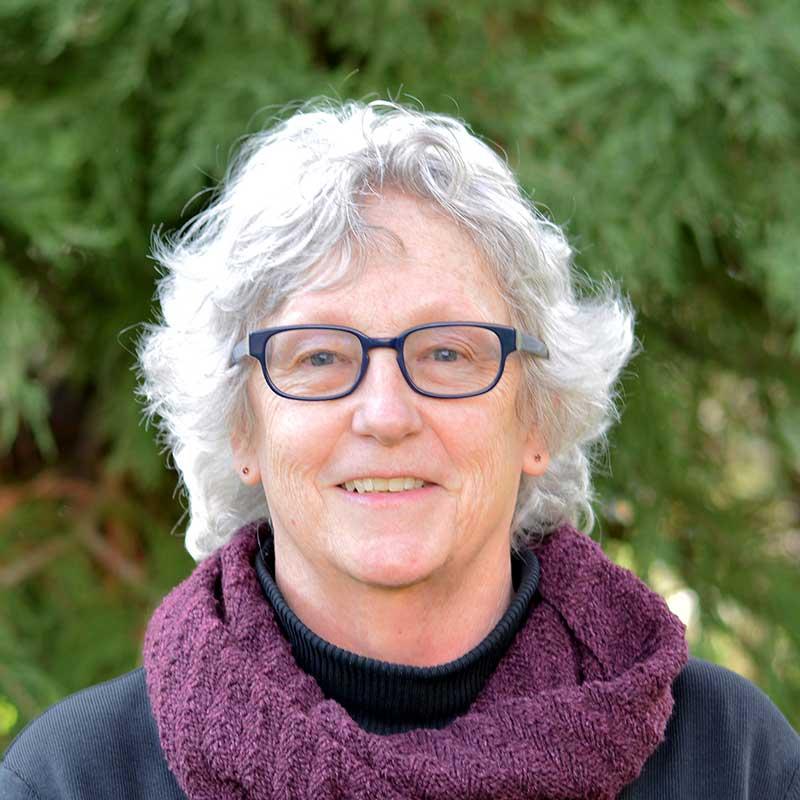
Principal Investigator
Professor of the Graduate School in Environmental Science, Policy & Management, and Plant & Microbial Biology
Research Interests:
Soil microbial ecology: Microbial processing of carbon and nitrogen underlie the capacity of soil to support plant growth in agriculture, rangeland, forests, and wetlands. However the extreme heterogeneity of soil and the scale at which microorganisms interact with their habitat has made understanding the ecology of soil microbes a challenge of long duration. The research done in the Firestone lab aspires to fundamental understanding as well as knowledge applicable to current problems including terrestrial system response to global change, sustainability, biodegradation, and soil structure.
Honors and Awards:
- CAS Distinguished Professorship: Chinese Academy of Sciences 2019
- Excellence in Ecosystem Science Award: Natural Resources Ecology Laboratory 2017
- Soil Ecology Society, Career Achievement Award 2017
- Fellow- American Geophysical Union 2016
- Betty and Isaac Barshad Chair in Soil Sciences 2016
- Fellow of the Ecological Society of America 2015
- Warkington Lecture in Soil Science, Oregon State University 2015
- CNR Career Achievement Award 2013
- Berkeley Faculty Service Award, UC Berkeley Academic Senate 2011-12
- Senior Fulbright Fellow, Lincoln University, New Zealand 2007
- Eminent Ecologist in Residence, W.K. Kellogg Biological Station, MI, 1997 & 2007
- Clark Distinguished Lecturer, Soil Science Society Meetings, Seattle 2004
- BBSRC Underwood Fellow, York University, UK 2004-05
- Fellow of the American Academy of Microbiology 2002
- Fellow of the Soil Science Society of America 1995
Staff
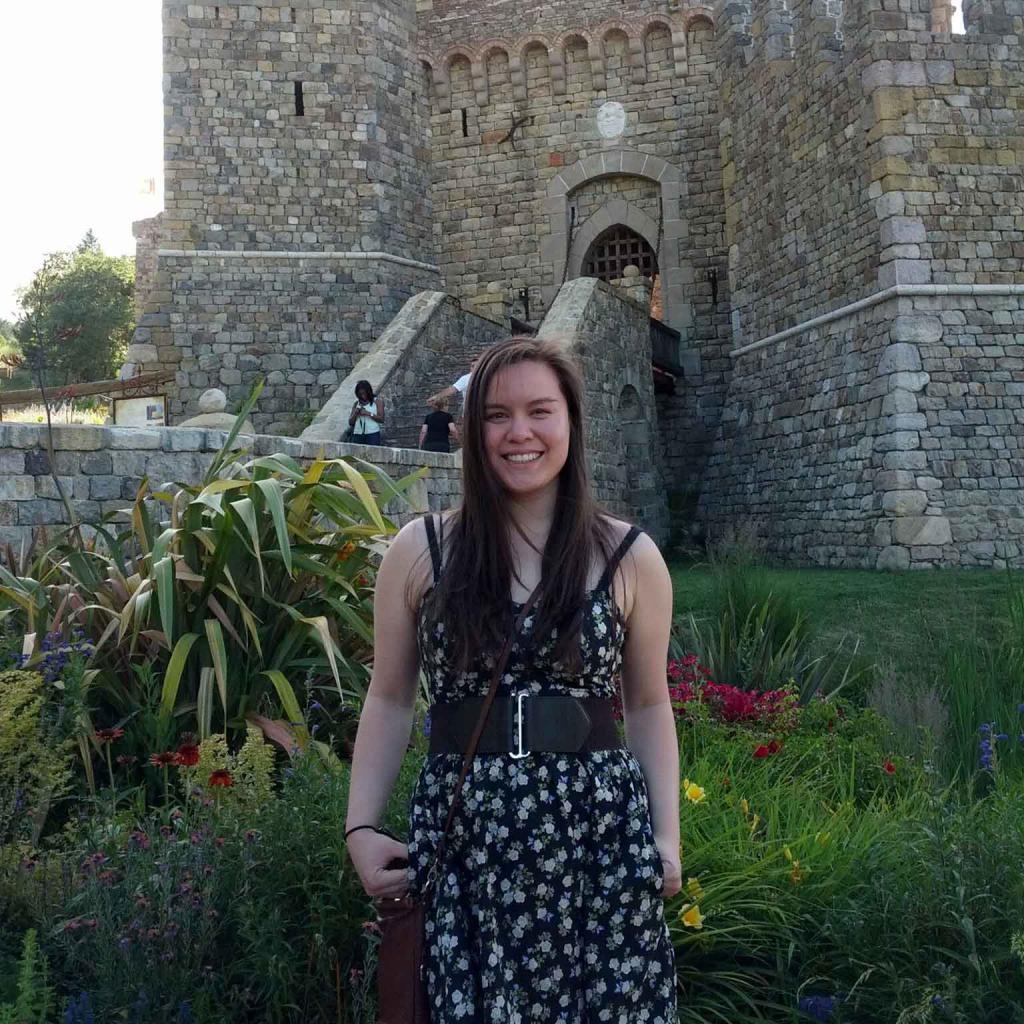
Katerina Estera-Molina
Project Manager / Staff Research Associate
Educational Background:
M.S. Rangeland Management, University of California
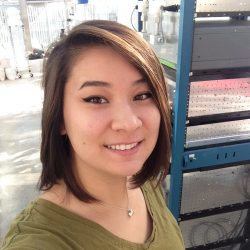
Ilexis Chu-Jacoby
Lab Manager / Staff Research Associate
Educational Background:
B.S. Molecular Environmental Biology, University of
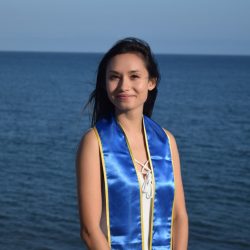
Alyssa Byer
Lab Technician
Educational Background:
B.S. Ecology and Evolutionary Biology, University
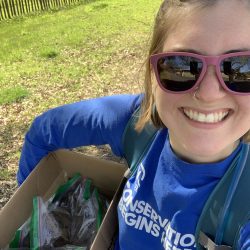
Christina Fossum
Staff Research Associate
Educational Background:
M.S. Rangeland Management, University of California

- rinaest@berkeley.edu
Katerina Estera-Molina
Project Manager / Staff Research Associate
Educational Background:
M.S. Rangeland Management, University of California, Berkeley 2017
B.S. Microbial Biology University of California, Berkeley 2010
Research Interests:
Soil microbial ecology, root exudates, carbon cycling, rhizosphere
The main goal of my research is to contribute to a better understanding of how Mediterranean rangelands will respond to climate change. Mediterranean rangelands in California are an important source of forage production for livestock. Understanding the interactions among rangeland plants, soil and the soil microbial community is important in regards to soil health and the overall quality and quantity of forage production. My research focuses on the rhizosphere, the interface between the root and soil. Specifically, I am interested in the characterization of root exudates, compounds exuded by the roots. These exudates can act as a carbon source for the surrounding soil microbial community. Different types of exudates have the power to select for different types of microbial communities. This can in turn have an influence on the nutrient availability in the soil and other plants in the system. I will be working with Avena fatua, a wild oat commonly found in Mediterranean grasslands. I am investigating how the exudate composition changes over the lifetime of the plant, and if exudate composition will differ between plants grown in ambient verses elevated CO2 conditions. This characterization will help us achieve a better understanding of the potential response Mediterranean rangelands could have to climate change.
follow me on

Ilexis Chu-Jacoby
Lab Manager / Staff Research Associate
Educational Background:
B.S. Molecular Environmental Biology, University of California, Berkeley, 2017
Awards:
Ronald E. McNair Scholars Program; Sponsored Projects for Undergraduate Research
Senior thesis title:
Assessing Persistence of Soil Carbon Mineral Bonds in the Presence of Iron and Aluminum
Research Interests:
soil geochemistry, environmental chemistry, carbon cycling, climate change, soil microbial ecology
My research investigates how a complex soil environment influences chemical bonds between soil organic carbon and mineral surfaces. I am interested in the ecosystem and biogeochemical properties that influence carbon cycling through soil: the plants depositing fixed carbon into the soil; the microbes which respire organic carbon back to the atmosphere; and the minerals that protect carbon from microbial degradation, enabling mineral-associated organic carbon to persist in soil for thousands of years. My research more specifically characterizes these persisting carbon-mineral bonds, tracing the origin of the mineral-associated carbon with stable isotopes. Through chemical extractions, I measure the strength of soil carbon-mineral bonds to elucidate the fundamental mechanisms by which organic carbon persists in soil.
Continuing work in the Firestone Lab provides me the opportunity to engage with further knowledge and techniques in microbiology, density fractionation, and various chemical analytics with mass spectrometry.
follow me on
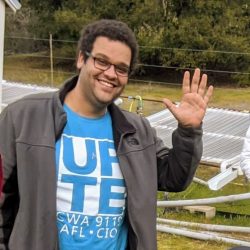
- aachew@berkeley.edu
Aaron Chew
Lab Technician
Educational Background:
University of California, Santa Cruz
follow me on

- alyssabyer@berkeley.edu
Alyssa Byer
Lab Technician
Educational Background:
B.S. Ecology and Evolutionary Biology, University of California, Santa Barbara, 2019.
Research Interests:
Microbial and disease ecology
follow me on

- chfossum@berkeley.edu
Christina Fossum
Staff Research Associate
Educational Background:
M.S. Rangeland Management, University of California, Berkeley, 2020
B.S. Molecular Environmental Biology, University of California, Berkeley, 2017
Research interests:
Soil microbial ecology, biogeochemistry, and carbon dynamics, rangeland ecosystem management, climate change & ecosystem ecology.
follow me on
Postdoctoral Researchers
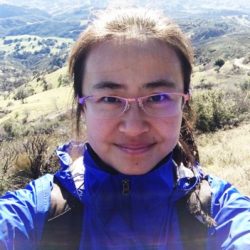
Mengting (Maggie) Yuan
Postdoctoral Researcher
Educational Background:
Ph.D. Microbiology, University of Oklahoma, 2017

Ella Sieradzki
Postdoctoral Researcher
Educational Background:
Ph.D. Marine Biology and Biological Oceanography, U
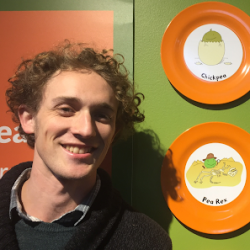
Alex Greenlon
Postdoctoral Researcher
Educational Background:
Ph.D. Plant Pathology; University of California, Da

- maggieyuan@berkeley.edu
Mengting (Maggie) Yuan
Postdoctoral Researcher
Educational Background:
Ph.D. Microbiology, University of Oklahoma, 2017
B.E. Environmental Engineering, Tsinghua University, 2011
Awards:
Institute for Environmental Genomics (IEG) Excellent Student Award, 2017
George L. and Cleo Cross Graduate Student Endowed Scholarship, University of Oklahoma, 2016
American Society of Microbiology Student Travel Grant, 2014
Research Interests:
Soil microbial ecology, terrestrial nutrient cycle, rhizosphere biology, climate change
My research aims at contributing to a clearer picture of the paths and fates of photosynthetic carbon, and how climate change affects them, by studying belowground biotic and abiotic processes, especially at rhizosphere, the interface of root and soil. For my post-doc, I will be working on a collaborative project addressing 1) the controlling of belowground carbon dynamics through multi-trophic interactions of plant, bacteria, archaea, fungi, soil fauna, and phage; 2) the effect of decreased precipitation on these processes in a Mediterranean grassland ecosystem. For my Ph.D., I studied the responses of soil microbial community composition, functional potential, and microbe-related soil processes to climate warming in both a temperate tall grassland ecosystem and at a high-latitude tundra underlain with permafrost.
Publications:
Google Scholar: https://scholar.google.com/citations?user=RvUbaacAAAAJ&hl=en
Research Gate: https://www.researchgate.net/profile/Mengting_Yuan
follow me on

- ellasiera@berkeley.edu
Ella Sieradzki
Postdoctoral Researcher
Educational Background:
Ph.D. Marine Biology and Biological Oceanography, University of Southern California, 2017
M.Sc. Ecology and Environmental Studies, Tel Aviv University, 2009
B.Sc. Biology, Tel Aviv University, 2007
Awards:
Provost Ph.D. fellowship, 2012
Norma and Jerol Sonosky Environmental sustainability graduate summer fellowship, 2014, 2015
Research Interests:
Soil microbial ecology, carbon cycling, soil viruses
I am generally interested in the interplay between microbes and their environment. As a post doc co-advised by Mary Firestone and Jill Banfield I’ll be focusing on carbon flow from plants into soil bacteria and archaea and eventually viruses using stable isotope probing and metagenomics. During my PhD I used stable isotope probing to study incorporation of carbon from naphthalene in marine bacteria, as well as prevalence of various light harvesting mechanisms and active viral infections using metagenomics and metatranscriptomics.
Publications:
Research Gate: https://www.researchgate.net/profile/Ella_Sieradzki
follow me on

- agreenlon@berkeley.edu
Alex Greenlon
Postdoctoral Researcher
Educational Background:
Ph.D. Plant Pathology; University of California, Davis, 2018
B.A. Molecular, Cellular, and Developmental Biology; University of Colorado, Boulder
Awards:
USAID Borlaug Fellow, 2015
Research Interests:
Soil organic carbon stabilization, Soil microbial ecology, Metagenomics, Microbial biogeography, Legume-Rhizobium symbiosis, Nitrogen fixation
As a postdoc in the Firestone and Banfield labs, I am applying metagenomics and quantitative stable-isotope probing (qSIP) to understand how plant-derived carbon moves through soil microbial communities, and what factors (soil type, moisture, season) affect the outcome of this cycle (whether this carbon respires back into the atmosphere or stabilizes as soil-organic matter). For my PhD I studied the global genomic diversity of the nitrogen-fixing bacterial symbionts of the legume crop chickpea.
Publications:
Google Scholar: https://scholar.google.com/citations?user=tJaWVCoAAAAJ&hl=en&oi=ao
follow me on
Graduate Students

Anne Kakouridis
Graduate Student
Educational Goal:
Ph.D. Environmental Science, Policy, & Management
<

- beeologai@berkeley.edu
HeeJung Cho
Graduate Student
Educational Goal:
Ph.D. Plant & Microbial Biology
Educational background:
B. A. Yonsei University, Systems Biology, 2013
Research interests:
soil microbial ecology, evolution, genomics
My research focuses on the role of microbial traits on their ecology and evolution in soil. Soil is one of the most complex habitats for microbes on Earth; biotic factors such as microbe-microbe interactions, plant-microbe interactions and abiotic environmental factors influence the fitness and evolution of life in soil. In many soil habitats such as Californian semiarid grassland soil, plant roots drive dynamic environmental changes in soil. As plant roots grow through soil, bacteria living in the rhizosphere experience environmental shifts. Changing environment selects soil bacteria based on their traits. My current project focuses on studying bacterial traits and genomic features that promote their growth in rhizosphere. Using Californian grassland rhizosphere succession as my first model, I wish to better understand the role of microbial traits on their life in varying environment.
follow me on

Anne Kakouridis
Graduate Student
Educational Goal:
Ph.D. Environmental Science, Policy, & Management
Educational Background:
M.A. Organismic and Evolutionary Biology, Harvard University, 2014
B.S. Biology, University of Utah, 2011
Research Interests:
Fungi, plant-microbe interactions, symbiosis, carbon cycling, climate change
My research focuses on the role of soil fungi in the carbon cycle and their potential to mitigate climate change by increasing carbon sequestration. Of the estimated 5 million species of fungi, many play crucial roles in ecosystems. In particular, soil fungi are involved in the carbon cycle as decomposers and plant symbionts, but the magnitude of their importance in soil carbon storage in unclear. The main focus of my work is to assess the role of arbuscular mycorrhizal fungi in the carbon flow from roots to the rhizosphere and ultimately to stabilized carbon in soil organic matter. My goal is also to determine how climate change affects fungal communities by identifying and quantifying arbuscular mycorrhizal fungi under current and predicted future climatic conditions.
follow me on
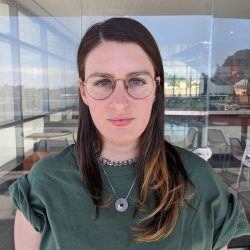
Alexa Nicolas
Graduate Student
Educational Goal:
Ph.D. Plant & Microbial Biology
Educational Background:
B.A. Molecular Biology, University of Pennsylvania
Awards:
NSF Graduate Research Fellow, Honorable Mention
Intel Science Talent Search Semifinalist (now Regeneron STS, formerly Westinghouse)
Research Interests:
Soil microbial ecology, viral ecology, nutrient sharing, vitamin biosynthesis
Our soils hold one of the largest carbon reserves on the planet. Microbes are central to soils’ carbon sequestration capacity. Soils are complicated environments where microbes live among different-sized particles, water and air, and nutrients. How do these soil microbes live together in communities and share resources? When microbes die their desirable contents spill into the local environment and become publicly available to neighbors. However, how microbes die is difficult to pinpoint, especially in complex environments like soil. Viruses, an understudied member of microbial communities, can kill microbes. Understanding the dynamics of viruses in soil provides a deeper understanding into how communities form, and potentially, build cooperative
networks.
Before pursuing a PhD, Alexa worked as an educator at a science museum, as an editor at a major academic journal company, as a writer at a stem cell research non profit, and as an evaluator at a restoration ecology NSF-funded grant reintroducing oysters into the New York harbor. Outside the lab, Alexa experiments with soil in a soil-based artistic practice.
follow me on
Research Affiliates
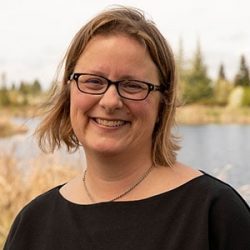
Jennifer Pett-Ridge
LLNL Senior Staff Scientist
Educational Background:
Ph.D. Soil Microbial Ecology, University of Califor
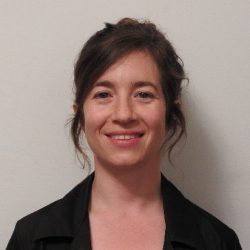
Rachel Hestrin
LLNL Postdoctoral Researcher
Educational Background:
PhD Soil and Crop Sciences, Cornell University, 201
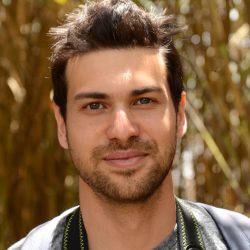
Noah Sokol
LLNL Postdoctoral Researcher
Educational Background:
Ph.D. Ecology, Yale University, 2018
B.Sc Pla

- pettridge2@llnl.gov
Jennifer Pett-Ridge
LLNL Senior Staff Scientist
Educational Background:
Ph.D. Soil Microbial Ecology, University of California at Berkeley, 2005
M.S. Forest Science, Yale School of Forestry & Environmental Studies, 1996
B.A. Biology, Studies in Environment, Yale University, 1994
Research Interests:
Jennifer Pett-Ridge is a senior staff scientist and group leader at LLNL who uses the tools of systems biology and biogeochemistry to link, identity, and function in environmental microbial communities. Recently awarded a DOE Early Career award to work on responses of tropical soil microbes to climate change, she has also pioneered the use of NanoSIMS isotopic imaging in the fields of microbial biology and soil biogeochemistry. As lead scientist of the LLNL Genomic Science Biofuels Scientific Focus Area (SFA) from 2009–2018 and more recently the LLNL Soil Microbiome SFA, she helps to coordinate multi-disciplinary teams that integrate biogeochemistry, stable isotope probing, NanoSIMS imaging, molecular microbial ecology, and computational modeling to understand biotic interactions and energy flow in microbial communities critical to soil nutrient cycling and sustainable biofuel production. She is the group lead for the newly-formed Environmental Isotope Systems group in the Nuclear and Chemical Sciences division and manages a portfolio of over $7 million in DOE, NSF, NASA and other funding. She helps to mentor a group of staff scientists, postdocs, and graduate students working on terrestrial and marine carbon cycling, plant-soil interactions, and development of new isotope tracing methods (El-FISH, Chip-SIP, STXM-SIMS) and collaborates frequently with scientists at academic institutions and other national labs. Pett-Ridge has published over 60 peer-review articles, including a patent ROI for the “ChipSIP” approach linking microbial identity and function using NanoSIMS analysis of microarrays.
follow me on

- hestrin1@llnl.gov
Rachel Hestrin
LLNL Postdoctoral Researcher
Educational Background:
PhD Soil and Crop Sciences, Cornell University, 2018
BA Geography, University of California – Berkeley, 2006
Awards:
Barbara McClintock Award (Cornell University), 2017
DOE Office of Science Graduate Student Research Program, 2017
NSF IGERT Cross Scale Biogeochemistry and Climate, 2016
MacDonald Musgrave Award (Cornell University), 2014
NSF IGERT Food Systems and Poverty Reduction, 2011
NSF Graduate Research Fellowship Program, 2011
Research Interests
I am broadly interested in plant-microbial interactions, terrestrial biogeochemistry, and ecosystem response to global change. My primary postdoctoral research investigates mycorrhizal resource exchange in bioenergy cropping systems. In collaboration with scientists at the Noble Research Institute, I am investigating biotic response to drought, hyphosphere microbial community assembly and function, and carbon allocation below ground. I use stable isotope probing, multi-omics approaches, and imaging to link biotic activity with ecosystem function.
follow me on

- sokol1@llnl.gov
Noah Sokol
LLNL Postdoctoral Researcher
Educational Background:
Ph.D. Ecology, Yale University, 2018
B.Sc Plant Biology, University of Guelph, 2009
Awards:
Soil Science Society of America: Truog Outstanding Soil Science Dissertation Award (2019)
National Science Foundation: Doctoral Dissertation Improvement Grant (2017)
Yale Institute for Biospheric Studies: Doctoral Dissertation Improvement Grant (2016)
National Science and Engineering Research Council of Canada: Doctoral Graduate Scholarship ‘PGS D’ (2013)
Research interests:
I am interested in how carbon and other nutrients cycle through terrestrial ecosystems, and how these cycles can be altered by disturbances like invasive species, planetary warming, drought, and land-use change. Much of my research is focused on soil biogeochemistry and soil ecology – specifically the role of the soil microbial community in controlling the formation and decomposition of soil organic carbon. My current projects include the role of different microbial ecophysiological traits in controlling soil carbon cycling, the effects of drought on soil microbial communities, and the ecology and importance of microbial death in soils. The overarching aim of this work is to improve our ability to model and predict the behavior of the terrestrial carbon cycle.
Keywords: Soil ecology, carbon cycling, rhizosphere, global change, invasive species, microbial ecophysiology
Google Scholar: https://scholar.google.com/citations?user=f-ql8Z4AAAAJ&hl=en
Undergraduate Students
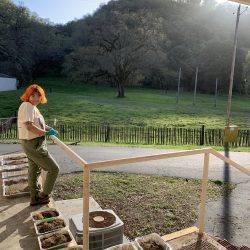
Cynthia-Jeanette Mancilla
Undergraduate Researcher
Educational Background:
B.A. Geology, University of California, Berkeley, 2
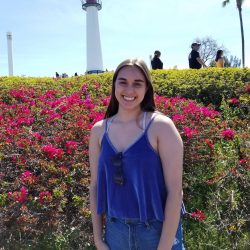
Laura Adame
Undergraduate Researcher
Educational Background:
University of California, Berkeley, 2021

Melanie Rodriguez
Undergraduate Researcher
Educational Background:
University of California, Berkeley, 2021

Cynthia-Jeanette Mancilla
Undergraduate Researcher
Educational Background:
B.A. Geology, University of California, Berkeley, 2020
follow me on

Laura Adame
Undergraduate Researcher
Educational Background:
University of California, Berkeley, 2021
follow me on

Melanie Rodriguez
Undergraduate Researcher
Educational Background:
University of California, Berkeley, 2021
follow me on
Recent Former Firestoners
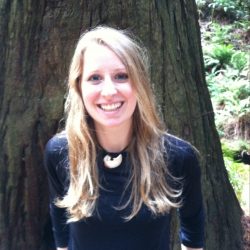
Rachel Neurath
Former Graduate Student
Educational Background:
Ph.D. in Environmental Science, Policy, and Managem

Jack Hagen
Former Lab Technician
Educational Background:
B.S. Molecular Environmental Biology, University of

Suzanne Pierre
Former Postdoctoral Researcher
Educational Background:
Ph.D. Ecology and Evolutionary Biology, Cornell Uni
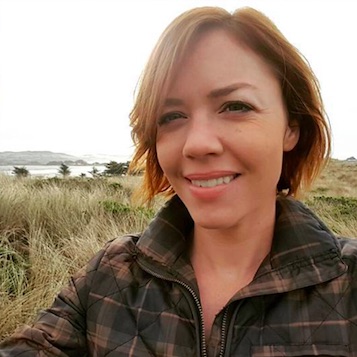
Sarah Baker
Former Senior Research Associate
Educational Background:
Ph.D. Ecology and Evolutionary Biology, University
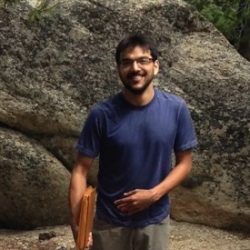
Nameer Baker
Former Postdoctoral Researcher
Educational Background:
Ph.D. Ecology and Evolutionary Biology, University

Tasnim Ahmed
Former Undergraduate Researcher
Educational Background:
B.S. Environmental Science and B.S. Conservation &
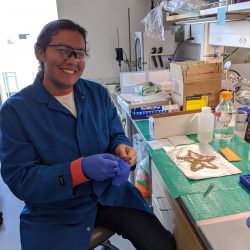
David Sanchez
Former Undergraduate Researcher
Educational Background:
B.A. Integrative Biology, University of California,
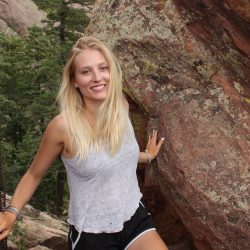
Madeline Moore
Former Undergraduate Researcher
Educational Background:
B.S. Molecular Environmental Biology, University of
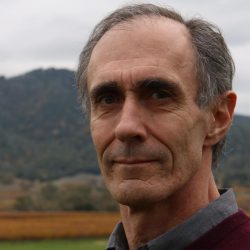
Don Herman
Former Staff Research Associate
Educational Background:
M.S. University of California, Riverside, Soil Scie
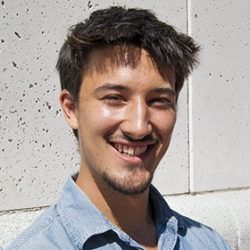
Evan Starr
Former Graduate Student
Educational Background:
Ph.D. Plant & Microbial Biology, University of Cali

- rneurath@gmail.com
Rachel Neurath
Former Graduate Student
Educational Background:
Ph.D. in Environmental Science, Policy, and Management, University of California, Berkeley 2020
M.S. Earth Sciences, Dartmouth College 2011
B.A. Earth and Environmental Science, Smith College 2009
Research Interests:
Soil microbial ecology, carbon cycling, soil geochemistry
My research focuses on the interactions between plants, microorganisms, and soil minerals that control carbon stabilization in soil. Plants are the primary source of carbon to soils, while soil microbes are the central transformers, metabolizing carbon substrates for energy and growth. While a significant portion of carbon that enters the soil reservoir is quickly respired back to the atmosphere, some of that carbon persists for up to thousands of years. The oldest carbon in soils is associated with soil minerals, which physically and chemically protect carbon from microbial degradation. In my research, I examine the processes that control what carbon substrates associate with different mineral types, and how long they remain associated with those minerals. The central focus of my work is the role of soil microorganisms in these processes of mineral association and dissociation – both as consumers and transformers of soil carbon, but also as a part of the soil carbon pool themselves.
follow me on

- spierre@berkeley.edu
Suzanne Pierre
Former Postdoctoral Researcher
Educational Background:
Ph.D. Ecology and Evolutionary Biology, Cornell University, 2018
B.A. Environmental Studies, New York University, 2013
Research Interests:
Global environmental change, plant-microbe interactions, soil microbial ecology, plant ecophysiology
Websites:
www.suzannepierre.com
www.criticalecology.space

Sarah Baker
Former Senior Research Associate
Educational Background:
Ph.D. Ecology and Evolutionary Biology, University of California, Irvine, 2016
B.S. Biological Sciences, University of California, Irvine, 2010
follow me on

- nameer@berkeley.edu
Nameer Baker
Former Postdoctoral Researcher
Educational Background:
Ph.D. Ecology and Evolutionary Biology, University of California, Irvine, 2016
B.A.H Anthropology, University of Kansas, 2011
B.Sc.H Ecology and Evolutionary Biology, University of Kansas, 2011
Research Interests:
Soil microbial ecology, nutrient cycling, anthropogenic change
During my postdoc I will be working on a collaborative DOE project seeking to understand how interactions between switchgrass and microbial communities in the rhizosphere aid establishment and growth of switchgrass in marginal agricultural soils. For my Ph.D., I investigated how aspects of climate and future climate change in southern California may affect carbon-cycling processes in litter, with a focus on the activity and efficacy of extracellular enzymes produced by microbial decomposer communities.
Publications:
Google Scholar:
https://scholar.google.com/citations?user=utReoqAAAAAJ&hl=en&oi=sra

- tasnim8@berkeley.edu
Tasnim Ahmed
Former Undergraduate Researcher
Educational Background:
B.S. Environmental Science and B.S. Conservation & Resource Studies, conc. Epidemiology, 2020
Senior Thesis Title:
Friends with Benefits: The Myccorhizal Resource Exchange between Serendipita bescii and Panicum hallii
follow me on

David Sanchez
Former Undergraduate Researcher
Educational Background:
B.A. Integrative Biology, University of California, Berkeley, 2020.
follow me on

Madeline Moore
Former Undergraduate Researcher
Educational Background:
B.S. Molecular Environmental Biology, University of California, Berkeley, 2020.
Senior Thesis Title:
Assessing Drivers of Fungal Community Succession in the Root System of Avena barabata
follow me on

- djherman@berkeley.edu
Don Herman
Former Staff Research Associate
Educational Background:
M.S. University of California, Riverside, Soil Science, 1987
B.A. University of California, Riverside, Plant Science, 1977
Research Interests:
Use of stable isotopes to investigate soil microbial processes
follow me on
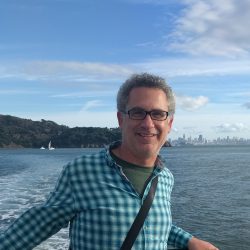
- sheryo@berkeley.edu
Yonatan Sher
Former Postdoctoral Researcher
follow me on

Evan Starr
Former Graduate Student
Educational Background:
Ph.D. Plant & Microbial Biology, University of California, Berkeley 2019
